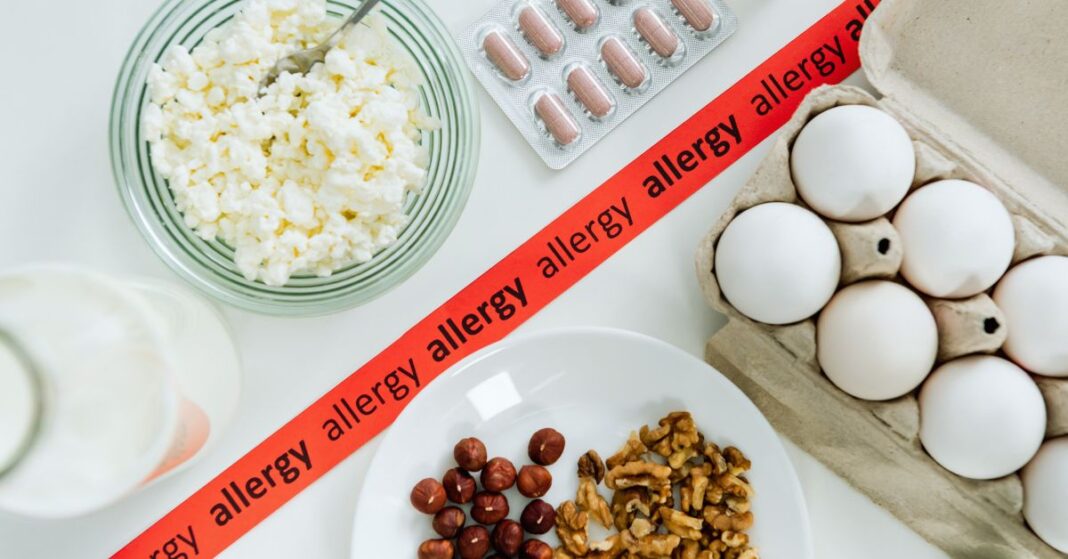Many people assume they know the signs of food allergy…but you might be surprised.
An allergic reaction is what your immune system causes when confronted with something to which it has developed a sensitivity. Allergies can come in many different forms.
Most Common Allergens
- Foods
- Dust
- Insects
- Animal dander
- Plants and mold
- Latex
- Prescription or over-the-counter drugs
The front-runner for most allergic reactions is food…and more than 32 million Americans (including more than 5 million children) have been diagnosed with a mild to severe allergy to a specific food.
That doesn’t count all the people who have undiagnosed allergies – who don’t even know they are allergic! Do you know the most common (and uncommon) signs of food allergies?
When most people think about food allergies, they are familiar with those shown in movies. Anaphylaxis shock due to an allergy to one of the Big 8 (eggs, seafood, milk, tree nuts, peanuts, shellfish, soy, and wheat) is used as a “plot device” to create drama or suspense in books and movies because without treatment, it can lead to coma or death.
There are approximately 30,000 cases of emergency room visits in the United States involving anaphylaxis annually and around 200 people die as a result of severe reactions to allergens.
The “well known” signs of food allergies…
- A tightening of the airways and inability to breathe
- Swelling in the throat that feels like a blockage
- Severe drop in blood pressure
- Lightheadedness to the point of passing out
There are other symptoms and signs of food allergies that you might ignore because they aren’t severe enough to cause you concern. The problem with ignoring them is that the more you expose yourself (even unknowingly) to a food that stimulates an immune response, the greater your risk of your reaction worsening over time.
For instance, someone who is allergic to peanuts (or any of the 8 most dangerous allergens) may have an episode that is mild the first time. The next time, their body’s reaction will be slightly worse…and then worse the time after that until eventually, they risk anaphylaxis.
Some allergies are so severe that anaphylaxis is induced with the first episode!
Now, an undiagnosed food allergy may cause a lesser response. In fact, it may be a food that consistently “doesn’t agree with your stomach” or other similar effects. Symptoms of an allergic reaction involving food can develop quickly (within minutes) or take as long as two hours.
Food Allergy Signs You Might Be Ignoring
• Itching, tingling, or numbness in or around the mouth
• Splotchy or itchy spots on your skin
• Unexplained “puffiness” above the neck (can happen elsewhere on the body)
• Irritated sinuses, congestion, or difficulty breathing
• Stomach upset that includes cramps in the abdomen, bloating, gas, diarrhea, or nausea
• Feeling dizzy or lightheaded to the point of passing out
• Fatigue, lack of energy, or moodiness after eating
• Pain in the muscles and joints
• Trouble sleeping
• Problems with concentration or recall
Sensitivity, intolerance, and allergies to foods – especially entire food groups – can lead to other conditions and nutritional deficiency. Finding the underlying cause to what is making you sick is more important than many people realize.
Get to the Root of the Problem!
Long-term exposure to foods your body can’t handle results in inflammation. Unchecked inflammation is the root cause for as much as 90% chronic conditions and diseases such as arthritis, diabetes, heart disease, autoimmune disease, cancer, and neurodegenerative diseases such as Alzheimer’s and Parkinson’s.
When the problem is with the foods you consume, symptoms may overlap and be misdiagnosed. Most doctors treat the symptoms rather than the whole body and often miss the big picture!
The secret to being mentally sharp, physically fit, and looking ten years younger is not about what you should eat…it’s all about what you should stop eating!
That part of the equation is so critical to your overall health. I’ve written about it in my book “One Diet For Life” but don’t let the name fool you! “One Diet For Life” isn’t some fad weight loss plan or a rambling about the latest and greatest “miracle pill.”
It’s all about the foods *you* can and cannot tolerate. Specific to you as an individual that won’t work for anyone else on the planet…not even a parent, sibling, or child.
That’s right! The key to fantastic health cannot be duplicated from person to person because what works for you might not work for me (and the opposite is also true). Naturally, there are “healthy” foods that all of us need but that doesn’t mean that everyone can tolerate them equally.
A natural side effect of eating the best foods for you is better health, feeling amazing, and being in a better position to control your weight.
I was one of the pioneers in the food allergy movement in the 1970s and 1980s. Over the years of treating my patients, I learned that the most important thing about nutrition is not what you are lacking, but what you are eating that your body isn’t able to process well.
You need a system that allows you to work out what’s right for your individual body. Sure, it can take focus and time but the result will be how good you feel eating the best foods (that your body loves) and avoiding the wrong foods (that send your body into chaos).
It all boils down to listening to your body, not ignoring the milder signs of food allergies, and doing what makes it feel great.
Get my book “One Diet For Life” right now and let’s work out your optimum eating plan together!




